In US movies people usually spend their two weeks vacation in „Europe“, no matter if they go to Germany, Spain or Norway. „Where do you spend your vacation? Europe!“. We Europeans of course don’t say silly things like that. We spend our six weeks holidays in South East Asia. That’s what’s between China and this outsourced part of Europe: Australia.
When I refer to South East Asia from now on, I refer to the South East Asian part of our journey, which means only the countries we have been to: Myanmar, Thailand, Laos, Vietnam and Cambodia.
Smile! You’re at Mr. Smiley’s.
The countries of South East Asia indeed have many similarities and still after several months here I cannot tell where someone is coming from. Only directly after a border crossing it was often obvious that the facial structure in general has slightly changed.
While Central Asia had been hospitable and India had been intrusive, it was difficult to get in touch with the South East Asian culture. In all countries people seemed rather reserved and polite. I had the impression that a lot is said with facial expressions. Myanmar being the country with the most smiles probably. Thai people seemed rather shy, even a bit anxious, at least towards someone who looks like he decided to live in civilization just yesterday (I need to find a trustworthy barber soon). But as soon as you smile, they also smile. And I really like to remember these situations where we didn’t know how things work here and stood around like total fools and then the Thai had this contagious smile. They have fun watching you trying to figure out how things work. They don’t disturb you. If you ask, they help, but otherwise they watch and smile. And that makes figuring out how things work a lot of fun actually.
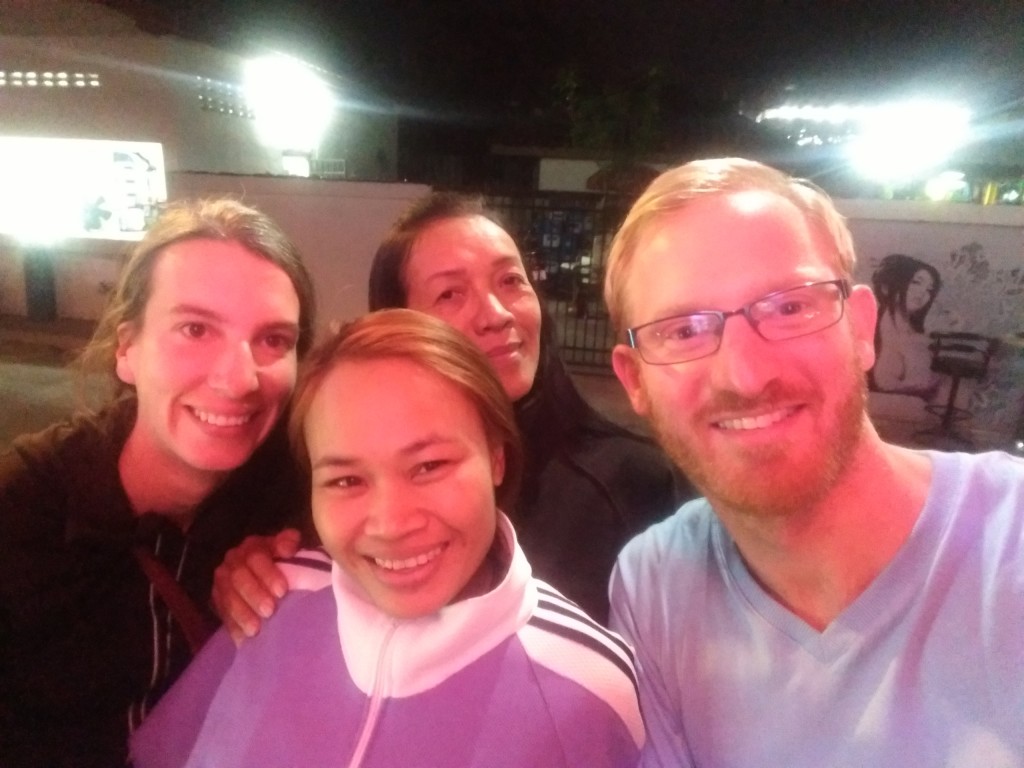
The Vietnamese touched us a lot. They pull your arm to turn you around or take your hand and put it where you have to sign. They also shouted a lot: „Come here!“ „Helloooooo!“. It often felt hostile, but maybe some imitated the out-going US behavior. Of course that doesn’t feel authentic then, but rather like parroting.
Sabaidee! If you have been to Laos and don’t know their word for „hello“, then you haven’t been to Laos. I think they also smiled a lot, but definitely what you remember are the toddlers running around naked shouting „Sabaidee!“ in total ecstacy. It’s just funny. Conversations with a toddler usually go like this for several minutes:
Toddler: Sabaidee!
You: Sabaidee!
[Repeat and increase volume]
The eternal sunshine of the spotless mind
While reading my last few posts as a preparation for this conclusion about South East Asia, I got the impression that I not only sounded sarcastic when writing about tourists, but maybe also a little bitter. Seeing people enjoy something you cannot enjoy is probably a situation that reminds you on your own upbringing and on rules you have learnt and maybe didn’t want to learn.
Ach und könnt‘ ich doch nur ein einz’ges Mal
Die Uhren rückwärts dreh’n
Denn wie viel von dem, was ich heute weiß,
Hätt‘ ich lieber nie geseh’n.Oh, if I only could just onceTurn back the hands of timeFor so much of what I know todayI’d rather never seen.
I tried to distinguish between different types of tourists:
There are some that don’t care about nature. I don’t like that, but actually I am OK with it. They take what they want, but they know what they are doing. Destruction beyond what is essential for survival is part of human nature. Otherwise we would still sit on trees and eat bananas. In the end I am sitting in front of a computer and I can tell you it is not made of banana peel. You could argue of course, that driving a beach buggy through the mountains of northern Laos is less important than building a computer. I guess the guy driving the buggy would disagree, though.
Then there are tourists that spend two weeks in an apartment complex or in a beach resort. I couldn’t enjoy a beach as crowded as these places, with a busy road between the hotel and the ocean. But if people enjoy that, well, let them enjoy.
„You two do what ever you wanna do whenever you wanna do it and I don’t complain.“
Lester Burnham
And then there are these organic coffee and smoothie drinking people that also do some voluntary work and want to save the planet, but just don’t get, that they do the exact opposite. The industry already understands the demand for innocence. Funny enough you can buy Innocent-smoothies in every German supermarket. And the eco-tourism industry also got it now. They sell the feeling of being the innocent tourist, who actually has nothing to do with hotel complexes, cut down trees, crowded beaches and capitalism. No no no, it’s a perfect world. You have fun while saving the planet: Support the local farmer, feed the poor, buy organic coffee, visit the monkeys – all of you! Now!
That makes me mad. But I am not mad at the tourist industry. I am mad at the people and their wish for being innocent, staying in paradise, playing on their Apple™. I’d like to shout:
Stop being innocent! Take some responsibility, you gullible, aesthetic fool!
And yeah, that sounds bitter. Maybe I envied them. And that’s when I realize, that perhaps it’s not about the tourists. Perhaps it is just about me. I used to prefer milk chocolate over bitter chocolate. That changed recently. Perhaps I’am just getting older. I’ve been sweet for a while, too.
Immitation of Life
We have visited remote regions in all countries of South East Asia. Probably the most remote ones being in Myanmar and Laos. Spending a night with the Kayin was an extraordinary experience. But actually South East Asia is run over by western lifestyle. Thailand for us was hardly recognizable as a South East Asian country. Of course there are some Buddhist temples, but there is much more Tesco Lotus, 7/11, Starbucks, KFC, BurgerKing, McDonalds and Pizza Company.
„This isn’t life, it’s just stuff. And it’s become more important to you than living. Well, honey, that’s just nuts.“
Lester Burnham
That’s the same in Germany of course, but there was hardly a city in South East Asia, that had any charm. They all felt soulless and had no real center. Maybe Luang Prabang was the only exception, even though it was more or less inhabited by tourists.
Many people are overweight in Thailand. It’s the American beauty. There are gyms of course and 7/11 also sells salad. In Laos and Cambodia on the other hand men look like they just returned from a photo shooting for Men’s Health. However, they don’t call it „the perfect work-out“, they just call it „work“.
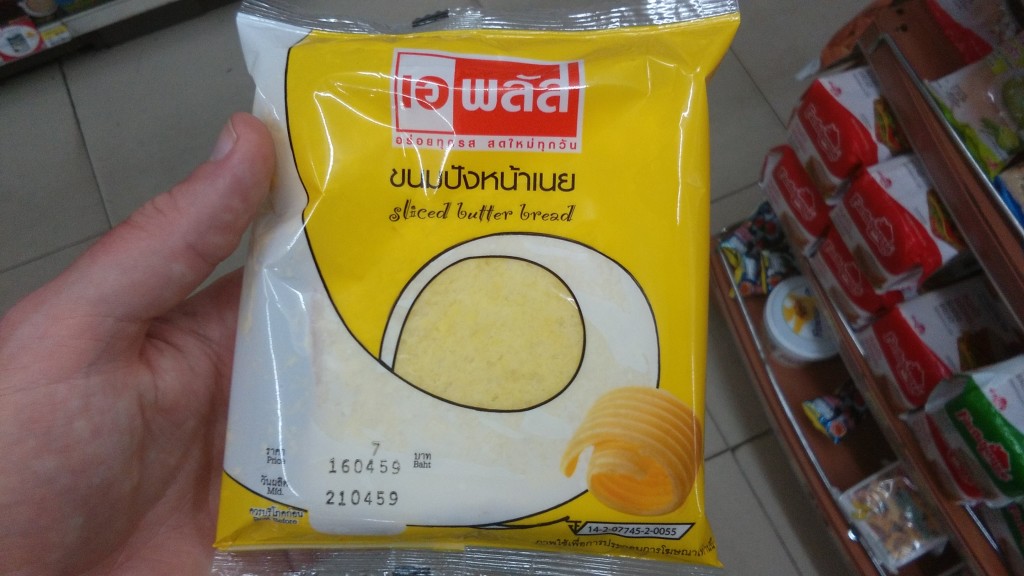
And like the salad at 7/11 everything is packed in plastic. A single piece of cake, one slice of bread with butter. At the cashier you get a thousand plastic bags, plastic spoons, plastic cups with plastic straws. Really it makes you angry. It is like someone throwing trash at you. All of this plastic will be thrown away within a maximum of 5 minutes. Often they pack everything in three layers of plastic, then you take it, unwrap it again and throw the trash in the bin that is just in front of the entrance..
I’m a Barbie girl in a Barbie world
Life in plastic, it’s fantastic
In Thailand and Vietnam there is rarely a bakery or anything where you can just get something that is not packed, cooled and delivered by a big company. These two countries are already highly developed or actually highly supplied. Thailand is really a copy of the USA. Vietnam is maybe a copy of China, but since we haven’t been to China I can hardly tell.
In Myanmar, Laos and Cambodia there are small villages and huts. Everything is very basic. No super market chains, no franchise. But you won’t find any tourists there. As soon as you enter touristic places, everything is full of French cafes, Norwegian bakeries, Steak Houses, Pubs etc.
But it all looks fake and usually is not owned by local people. Even the organic coffee farms in remote areas in Laos have wooden signs and coffee-menus designed by a British graphic design student who wanted to work half a year for a non-profit-organization. Fake fishermen at Inle Lake are fake-fishing for you when you take pictures, people playing traditional music at temples are fake. I wouldn’t be surprised if the monks are fake.
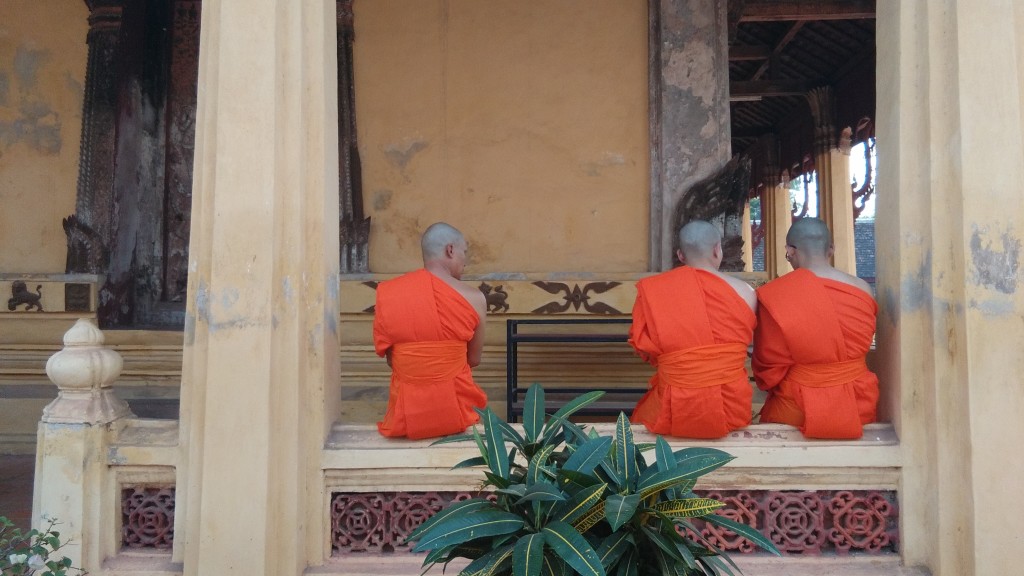
As soon as you leave touristic places the authentic Burmese, Lao or Cambodian lifestyle consists of bamboo huts, some simple street kitchens and sugar cane juice. Almost everything else is made for tourists. An imitation of western life.
That sugar cane that tasted good.
That cinnamon, that’s Hollywood.
Come on, come on.
No-one can see you try.
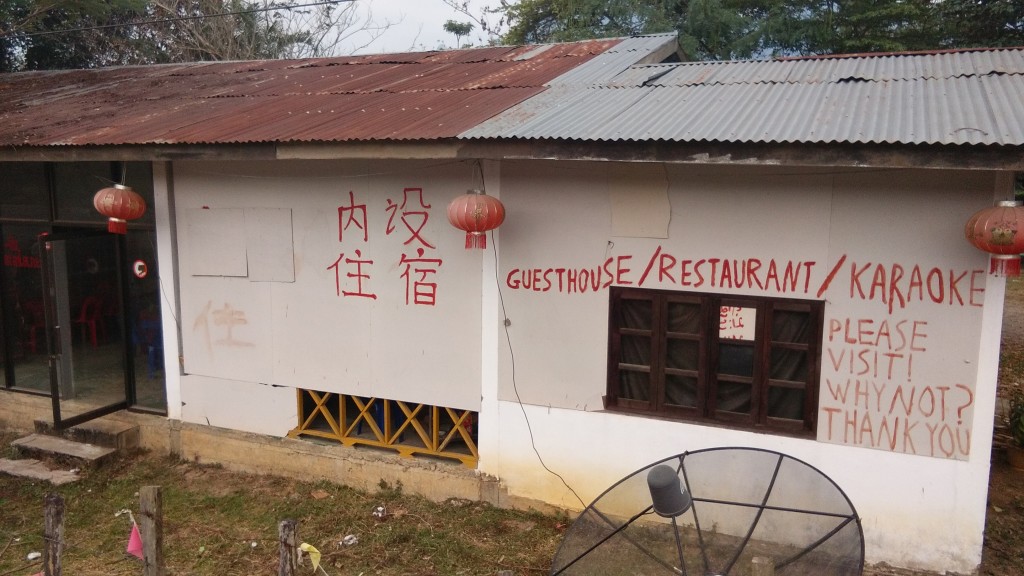
The good, the bad, the ugly
There have been a lot of wars down here in South East Asia recently and therefore there are a lot of good, bad and ugly people here. If you want to be the good guy it helps a lot to have nice beaches, let the US put some military bases in your country and never ever fight your colonialist or your „liberator“.
Myanmar is bad, because it is not a democracy and because the US and Europe don’t like that. We like Thailand, which is a monarchy currently run by a Junta. A country in which you can get send to prison for 30 years, because you criticized or made fun of the king. First it was 60 years until the guy pleaded guilty. And it is not even allowed to tell the public, what the accused has actually written or said, because repeating it, would put you into prison as well. That’s especially worth mentioning, since we have a very heated discussion about exactly this topic in Germany right now. The last time we felt that paranoid in a country was in Turkmenistan. Really, I am not joking. It is strange, that the western world seems to have no problem with this situation in Thailand, while everybody is talking about North Korea, Turkmenistan, Iran or Myanmar. Pictures of the Thai king are hanging everywhere here. He seems a bit god like. And because of these last few sentences I just wrote, I will publish this article only after we have left Thailand.
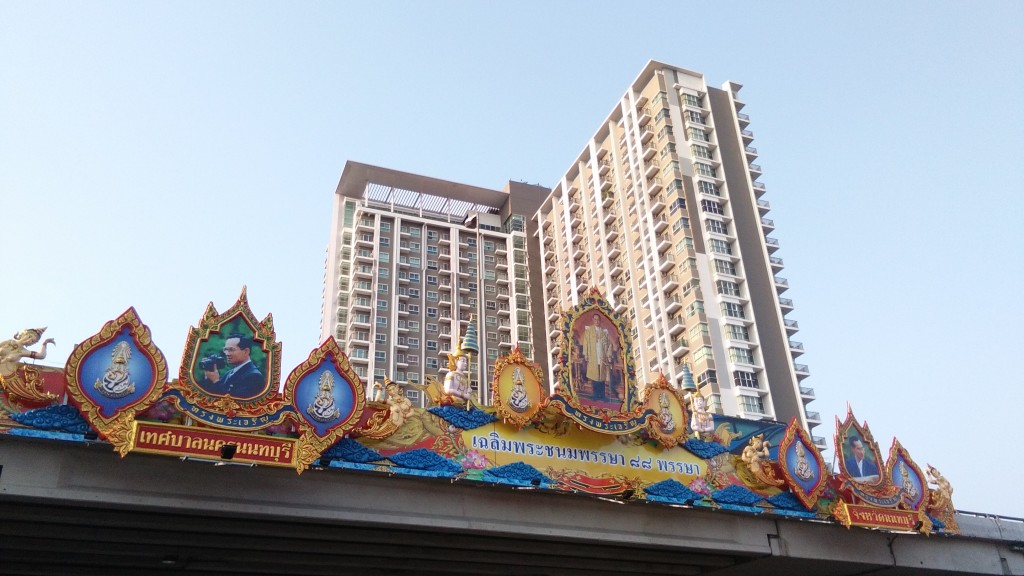
In Germany we have seen documentaries about Myanmar. You see people who are forced to build roads. But actually it is a bit different. They don’t build just any road. It is the road that connects their village with the next village. It is like watering your cherry tree. You benefit from it. The government in fact doesn’t pay you for that. But when you build roads for some years you get a passport or can open up a business. In a lot of other countries it works in a similar way with military service. By the way, the alcohol abuse and unemployment in Myanmar is a big issue. Getting people to do something else than drink whiskey, while at the same time improving the infrastructure of the country isn’t the worst thing I can imagine.
I don’t want to evaluate the political structures of Myanmar. But for me it looks like a militarized regime has tried to hold down pro-western voices, because they knew, as soon as these voices get louder, Myanmar will de-facto become an American/European colony. And looking at some other countries in South East Asia, they were right. Now the Nobel peace price winning Aung San Suu Kyi is more or less leading the country. Of course everything will get better soon. But maybe that’s mostly because now the sanctions get lowered and because she is pro-west, so her politics will get portrayed differently in western media. In the end it is not so much about whether you are pro-democracy or not.
In all of South East Asia I got the impression, that a lot of people have abandoned their culture for a flat screen TV and a pickup truck. That’s not the worst thing, but as travelers we have seen more authentic regions. Here it seems everybody wants to be western and modern.
And of course the wars have had a big influence here, too. But also these wars were fought by foreign cultures. And that often made me angry. I’m telling this again, because we have seen it so often now: The violent conflicts of this world seem to get started always by poor people living in huts in the middle of nowhere. Nagorno Karabakh (Armenia/Azerbaijan), Gorno-Badakhshan (Tajikistan), Sikkim (India), Manipur (India), Myanmar, Laos and Vietnam. Someone always sees a thread in these people and – at least in South East Asia – bombs them back to the Stone Age. Then we help them to develop.
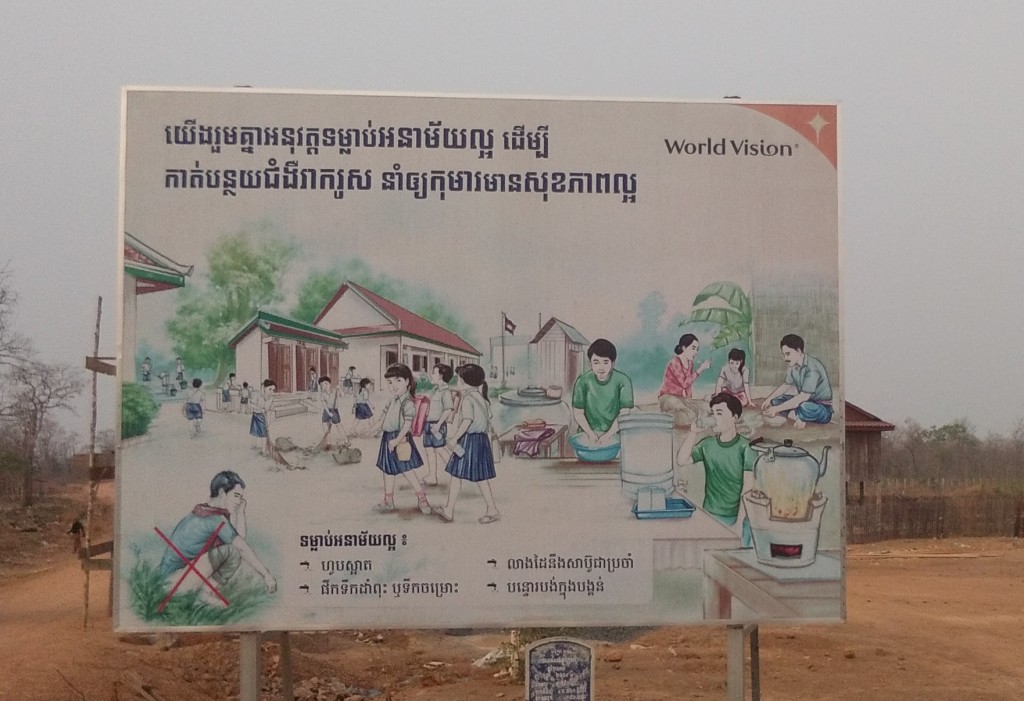
We have cycled through these regions and every single time, the so called „police“ or „liberators“ or „peacekeepers“ are much more threatening than the rebels. I think Manipur was the best example: India wants to have control over Manipur. Now they need a reason to control it. Really, there are bamboo huts and banana palms and in between thousands of Indian soldiers. They are just waiting until one farmer has enough of this occupation and hits a soldier. Then it is an attack and then there is a reason to take action.
My spoon is too big
In many regions in the world we had to face challenges. In Central Asia the supply situation was very bad. Getting something to eat or even a Snickers was work for a day. And we completely relied on our tent and camping cooker. In the Himalaya of Nepal the lack of oxygen and the cold was challenging and we relied on warm clothes and the weather forecast. In South East Asia, the heat is the biggest challenge. That also means, that we cannot really prepare for it. I can put on some sunscreen, but that’s it.
So already since India I only use the content of one of my five big panniers. We don’t need the camping burner, the tent, the sleeping bag, winter clothes. We don’t even carry any food supply.
We brought all the equipment and now we stay in hotel rooms and eat in restaurants. It feels like to summit the Zugspitze (highest mountain of Germany) fully equipped with hiking boots and clothes, but by taking the cable car.
You need to know, that I am not completely happy with our way of traveling already for some months. First I thought I have this traveler’s burn-out some people talk about. Other cyclists we talk to tell the same: They are tired. Some have already reached their final destination and fly back to Europe from Bangkok or Singapore.
But I always thought about Iran and Central Asia and how I would immediately enjoy being there. I wouldn’t be tired there. For me it is the heat and the fact that everything is available and we are over-prepared from a traveler’s point of view, but under-prepared from a tourist’s point of view. Because I can tell you, cycling from one sight to another in 40°C is horrible. If you don’t like the „in-between“, it really sucks. Why cook, when there is a cheaper street kitchen? Why carry supply, when there is a 7/11 everywhere? Why pitch the tent, when a room with a shower is 5 dollars?
That makes you feel like this guy in Don Hertzfeld’s cartoon above. Yeah, that’s exactly how I feel. We carry a way too big spoon with us and it is totally useless here. And like the guy in the cartoon I first only noticed this (!). Then after a while in India I was all like „My equipment is too big!!“. And now I am already a bit angry (!!!). Funny enough everything started when suddenly there were bananas everywhere.
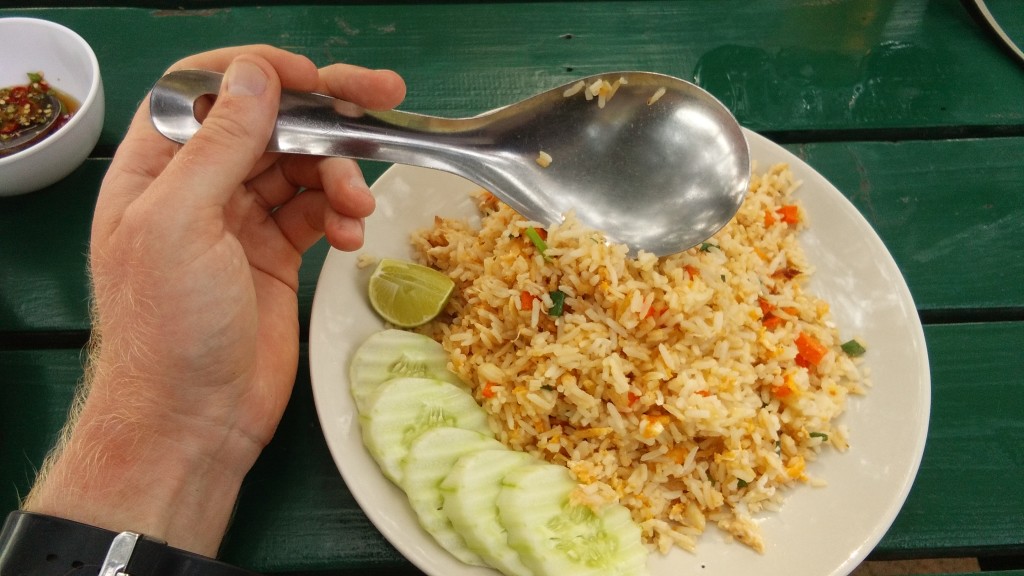
South East Asia is not our favorite cycling region. Laying on the beach and sitting in air conditioned French cafes is also not me. That’s just not what I want to do. Compared to our usual way of traveling, touristic countries like Thailand are very boring. Of course you can also spend weeks on dirt roads in the jungle of Laos in 40°C, but I’d rather climb Mt. Everest.
I already bashed India and Nepal and now most parts of South East Asia, too. We both liked Myanmar, though. Not only because we pitched the tent there a lot, but also because it had the right mixture of remoteness and civilization. And it was rather cool in January. In general, there were nice people and authentic regions everywhere in South East Asia. Maybe without the heat it would have been a quite nice experience.
But not liking something is also part of being a traveler. We had this discussion already in India with Fritz, Karin and Patrik.
Is it OK not to like the countries and the people you visit?
Shouldn’t a traveler endeavor to find the beauty in everything, because there is beauty in everything?
Is traveling in vain, if you just move, but don’t change your point of view?
I don’t know. I always try to understand why people are the way they are. For me that’s definitely a part of traveling. And a country is no different than a person. But after the process of understanding, there is still my personal emotion towards a person or country. And no matter how much I understand it, sometimes it turns out I still can’t stand it. That of course doesn’t mean I would have rather skipped the whole experience. Same goes for the climate. It was interesting to observe my Nordic body trying to cool me down to 15°C, when it was 40°C outside and very humid. And I guess there is more life on Mars than melanin in my body. But I felt like a marinated chicken breast on a barbecue grill the last months. I got burned, no chance!
It was a challenge to keep ourselves hydrated and mineralized. Really, we had to care for our bodies just so they kept on working in these extreme conditions. At a certain point you don’t want to drink anymore, because you hate the taste of warm water, but you have to. And you have to swallow magnesium and salt pills, because you feel the lack of it and you cannot keep the water otherwise.
The problem is also not so much the most intense heat. We had that in Turkmenistan and Uzbekistan, too, and even worse. The actual problems are the humidity and that the heat never stops. There are no mountains where you can hide. The Ocean and the rivers are warm. Even when you take a shower, the water is warm. Fruits are warm, your clothes in your bags are warm. And after all we spend a very long time here. So for several months our bodies had to fight the heat day and night. And that’s pretty exhausting even without cycling 80 km a day.
So yeah, I think we both are happy that the hot times are over soon. We already count down: „Only 5 more days…“. Osaka is currently around 20°C.
So that was South East Asia. It is already over, but it was a long part of our journey. We were sick a lot, I even had a serious accident, but recovered. We are looking forward to having lower temperatures in Japan and also some mountains and lakes and hopefully many chances to pitch the tent.
I remember, while planning our journey in Germany, South East Asia was always where I thought everything will be fine. The difficult countries would then lay behind us. Easy visa conditions, cheap rooms, good food, no cold continental winter to run from, instead palm trees and white sand beaches.
We thought it would be paradise. Indeed it was same same, but different.
Same same but different is a German movie telling the true story about a young, German man who falls in love with an HIV positive bar girl in Cambodia.
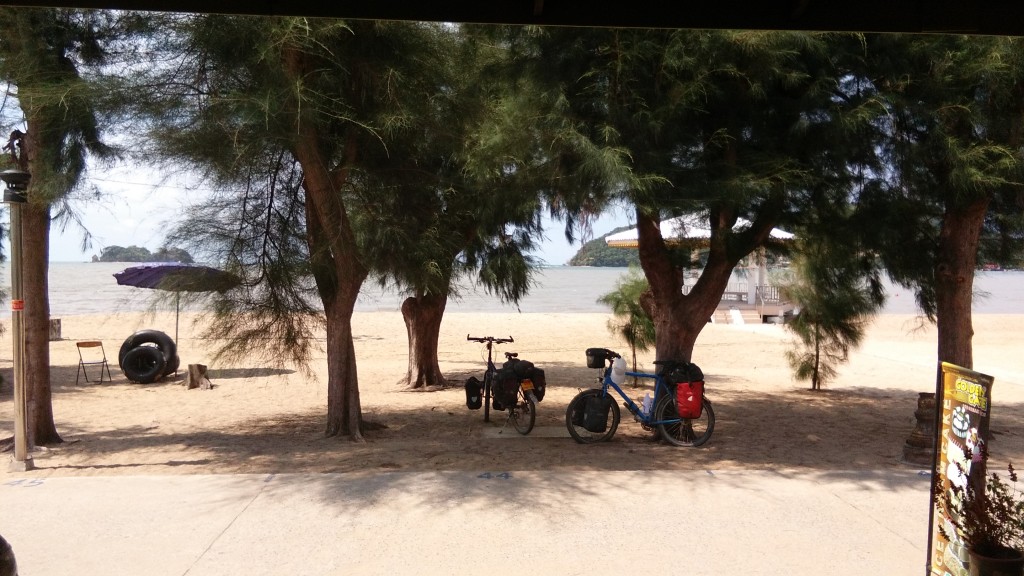
All blog posts about South East Asia in chronological order
Talking about a revolution – Myanmar
Emergency Room – Thailand Part I
— One year on the road specials
One year on the road – Ein Jahr unterwegs
Die innere Sicherheit (German)
Harder, better, faster, stronger
One Year in pictures – Ein Jahr in Bildern
— One year on the road specials
The heat is on – Southern Laos
First and Fourmost (April Fool’s joke)
Beach, please! – Thailand part II
